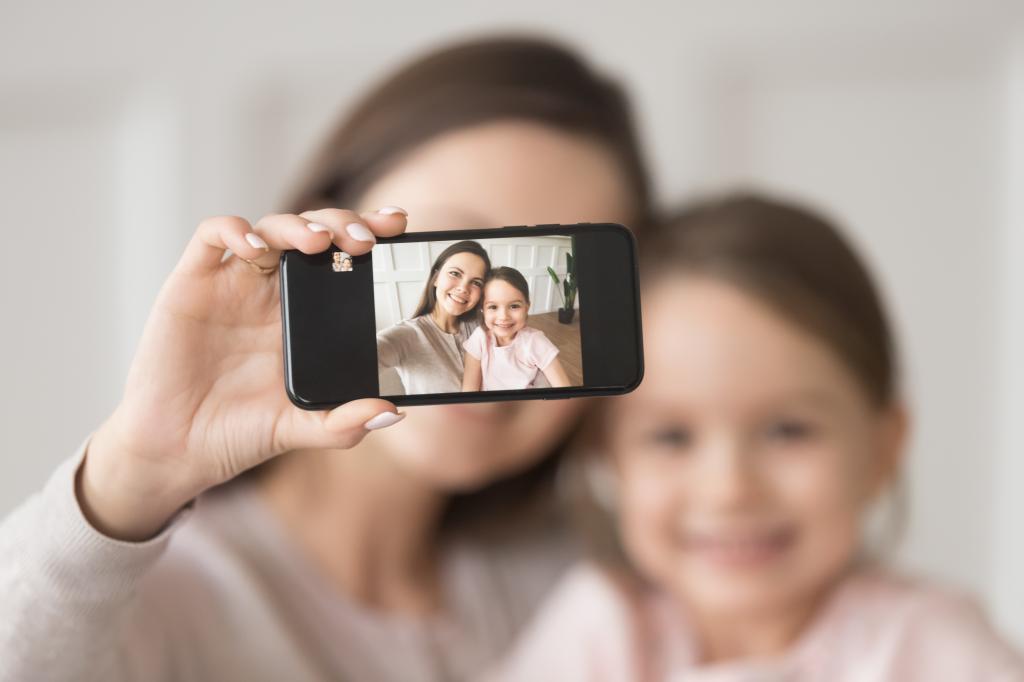I haven’t seen my friend Sarah for over a decade; we taught in Cambodia together in the early 2000s, which feels like a lifetime ago.
Which, in a way, it was, because both of us have married and had children since then.
Social media however has kept us close, which is why we both shared a laugh when she finally met my children this summer.
“So this is what they look like,” she exclaimed, “I’ve never seen their faces!”
Even though I’m a social media over-sharer, I have never posted photos of my children’s faces on the Internet; not even on a private Instagram or Facebook account.
When I was pregnant and found myself formulating our family’s social media policy, I thought about the famous quote from former Secretary of Defense Donald Rumsfeld in 2002 about supposed weapons of mass destruction in Iraq.
“There are known knowns; there are things we know we know. We also know there are known unknowns. But there are also unknown unknowns—the ones we don’t know we don’t know. And if one looks throughout the history of our country and other free countries, it is the latter category that tends to be the difficult ones.”
I considered this perspective when I thought about technology and how quickly it moves.

There were “known knowns” — the things I already knew about the evils of social media.
That it’s harmful to mental health — a space where rampant bullying and cruelty occur with abandon.
Then there were known unknowns: How might my kids feel about my social media posts one day? Would they grow up to be over-sharers like me, or far more private, like their dad?
There were, also, unknown unknowns. When my daughter was born almost 10 years ago, there was no such thing as AI.
But at the speed at which technology was moving, who knew what digital nefariousness might lay ahead?
Today, we are arriving at those answers.

In late April, a Quebec man was sentenced to at least three years in prison for creating “deep-fake” pornography by superimposing the faces of kids taken from social media onto the images of children being sexually exploited.
During the sentencing, provincial court judge Benoit Gagnon said, “The use of deepfake technology in criminal hands is chilling. The type of software allows crimes to be committed that could involve virtually every child in our communities.”
Perhaps no one has a more far-sighted window into the unknown unknowns of social media than Meta CEO Mark Zuckerberg. And how he handles social media and his own children is instructive: He doesn’t show their faces.

In a July 4th Instagram post, Zuckerberg concealed his older two daughters’ faces with emojis, prompting expected — and perhaps understandable — cries of hypocrisy.
But here’s the thing: It’s not up to Zuckerberg to protect our kids — it’s up to parents.
And in order to do so, many of us need to radically reassess how and what we share about our children online.
The danger isn’t just of predators using our kids’ photos. What we say about our little ones also has untold consequences: It could harm them socially, romantically, professionally or other unknown unknowns.
Consider sharing a child’s developmental or physical challenges publicly.
Sure, we may seek connection with other parents facing similar struggles; we may want sympathy and understanding from our personal and professional circles.
But fast forward 20 years.

Could a potential love interest or employer read about little Billy’s grade school tantrums and worry that, while he seems nice, has a hidden explosive temper?
Could posting about Sally’s heart surgery at five-years-old lead a health insurance company to refuse coverage decades later; citing the posts as proof of pre-existing conditions?
For NPR recently, 19-year-old Leta Elise Armstrong —the daughter of the recently deceased mommy blogger Heather Armstrong — shared how growing up online impacted her.
“I was a little frustrated because, like, I have all this content being put of me online and sometimes it’s not even accurate. It’s just embarrassing,” she said.
The NPR report went on to explain, “Leta’s also thinking about how this digital footprint will follow her. ‘I think it’s scary to think that, like, I can be judged off of that.’”

We simply do not know what might happen to a generation of children like Armstrong who’ve had their entire childhoods documented online.
Yes, there may be a benefit for parents, but what are the benefits for children?
The answer is clear: There are none.
We have known knowns, known unknowns, and perhaps scariest: unknown unknowns.
And all of them point to keeping our kids offline — not just off of their own social media apps and devices, but ours, too.
Bethany Mandel is the co-author of the recent book Stolen Youth: How Radicals are Erasing Innocence and Indoctrinating a Generation.”
𝗖𝗿𝗲𝗱𝗶𝘁𝘀, 𝗖𝗼𝗽𝘆𝗿𝗶𝗴𝗵𝘁 & 𝗖𝗼𝘂𝗿𝘁𝗲𝘀𝘆: nypost.com
𝗙𝗼𝗿 𝗮𝗻𝘆 𝗰𝗼𝗺𝗽𝗹𝗮𝗶𝗻𝘁𝘀 𝗿𝗲𝗴𝗮𝗿𝗱𝗶𝗻𝗴 𝗗𝗠𝗖𝗔,
𝗣𝗹𝗲𝗮𝘀𝗲 𝘀𝗲𝗻𝗱 𝘂𝘀 𝗮𝗻 𝗲𝗺𝗮𝗶𝗹 𝗮𝘁 [email protected]


